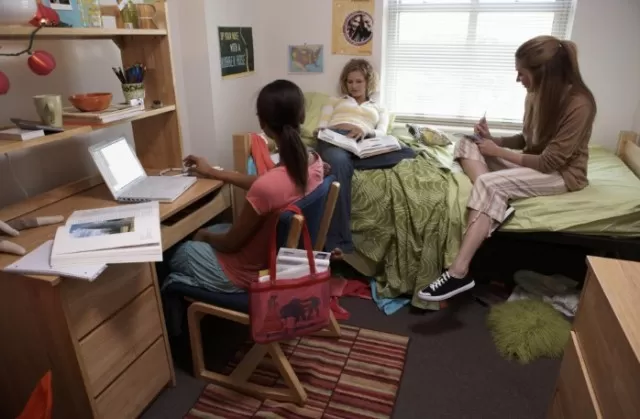Open Communication with Your Landlord: What to Share. Maintaining an open and honest line of communication with your landlord is essential for fostering a positive and respectful relationship.
When it comes to certain issues, being forthright and transparent can go a long way in ensuring you stay on your landlord’s good side. By being open and honest about these issues, you demonstrate that you respect the rental agreement and the property, which is likely to be appreciated by your landlord. Honesty builds trust and a positive relationship, which can lead to a more enjoyable and stress-free living experience for both parties involved. Remember, secrets might not make friends, but transparency and respect can make for a harmonious tenant-landlord relationship.
Taking Responsibility in Rental Homes: The Importance of Honesty and Communication

Renting a home offers a sense of freedom, liberating us from the long-term commitment of owning a property.
With a landlord to handle maintenance and repairs, we can enjoy the benefits without the burden. However, amidst the convenience, it is crucial to recognize that as renters, we also bear certain responsibilities.
Failure to fulfill these obligations can lead to significant repercussions.
One of the fundamental obligations as a tenant is to communicate openly and honestly with your landlord.
When issues arise, such as a broken appliance or property damage, it is essential to promptly inform your landlord. Neglecting to do so can result in unforeseen complications down the line.
By reporting problems promptly, you allow your landlord to address them in a timely manner, minimizing potential damages and inconveniences.
Moreover, communication is key when your living arrangements undergo changes.
If you plan to have a new roommate, bring a pet into the home, or any other alteration to the agreed-upon terms, it is vital to inform your landlord. Honesty in these situations fosters trust and maintains a positive landlord-tenant relationship.
While it may be tempting to avoid disclosing certain details or to delay reporting issues, such actions can have serious consequences.
Failure to communicate honestly may lead to disputes, strained relationships, or even legal complications. Additionally, unresolved maintenance problems can escalate, causing further damage or hazards to your living environment.
In conclusion, being a responsible renter goes beyond enjoying the perks of not owning a property.
Honesty and effective communication with your landlord are paramount. By promptly reporting issues, informing about changes, and fulfilling your obligations, you contribute to a harmonious and hassle-free rental experience.
Remember, honesty always paves the way for a smoother and more enjoyable tenancy.
Open Communication and Pet Ownership in Rental Homes: Respecting Landlord\’s Approval
When contemplating the addition of a furry companion to your rental home, it is crucial to involve your landlord in the decision-making process.
Notifying your landlord and obtaining their approval is essential, particularly if your lease explicitly prohibits pets. Ignoring these guidelines and bringing a pet into your home can provide your landlord with valid grounds to initiate the eviction process.
Even if your lease agreement does not explicitly ban pets, it is wise to engage in open communication with your landlord before welcoming a new animal companion into your home.
Taking this proactive step can help prevent any potential issues from arising down the line.
Respecting your landlord’s approval demonstrates consideration and responsibility as a tenant.
By consulting your landlord prior to introducing a pet, you show a commitment to maintaining a positive landlord-tenant relationship and ensure that you are adhering to the terms and conditions of your lease agreement.
Furthermore, discussing your intention to have a pet with your landlord can provide valuable insights.
They may have specific requirements or restrictions regarding pet ownership, such as size limitations or breed restrictions. Engaging in a respectful conversation allows both parties to address any concerns, set clear expectations, and establish guidelines for responsible pet ownership within the rental property.
Remember, open communication and obtaining your landlord’s approval regarding pet ownership fosters a harmonious living environment and helps avoid potential conflicts.
By considering your landlord’s perspective and involving them in the decision-making process, you demonstrate a commitment to being a responsible and considerate tenant.
Maintaining Transparent Living Arrangements: Informing Your Landlord About Roommate Changes

In the realm of rental properties, it is common for landlords to permit subletting a room in your apartment, provided you obtain their prior approval.
While subletting might be permissible according to state laws, seeking written consent from your landlord can preemptively address any complications that may arise during the move-out process. It is generally advisable to inform your landlord about any alterations in your living situation, whether you are welcoming a partner into the residence or seeking to find or replace a roommate.
By establishing open lines of communication with your landlord, you demonstrate a commitment to maintaining a transparent and accountable tenancy.
Regardless of the legal requirements, informing your landlord about changes in your living arrangements is a considerate practice that promotes a positive landlord-tenant relationship.
When contemplating the addition of a new roommate or the departure of an existing one, it is prudent to communicate with your landlord in a timely manner.
Seek their guidance and obtain their approval before finalizing any arrangements. This proactive approach not only ensures compliance with any lease agreements or regulations but also allows your landlord to provide any necessary instructions or insights relevant to the situation.
Moreover, informing your landlord about significant changes in your living situation can prevent misunderstandings and potential conflicts down the line.
It allows your landlord to update their records, maintain accurate occupancy information, and address any concerns they may have regarding the new occupant. Such transparency contributes to a harmonious living environment and helps sustain a positive renting experience for all parties involved.
In summary, maintaining an open line of communication with your landlord is essential when it comes to roommate changes.
Seeking permission before subletting a room and promptly informing your landlord about alterations in your living situation demonstrates responsibility, respect, and consideration. By adhering to these practices, you contribute to a cooperative and mutually beneficial relationship with your landlord throughout your tenancy.
Seeking Approval for Property Enhancements: Protecting Yourself and Your Security Deposit
It is crucial to bear in mind that as a renter, you do not own the apartment you reside in; it belongs to your landlord.
Therefore, any alterations or improvements you make to the property may be viewed by your landlord as defacement or damage, potentially holding you responsible for the costs associated with restoring the apartment to its original condition.
Rather than attempting to conceal your modifications, it is advisable to proactively seek written permission from your landlord before initiating any changes.
This approach serves as a protective measure, ensuring that your landlord is aware of and approves the improvements you wish to undertake. By obtaining written consent, you create a documented agreement that can safeguard your security deposit when it comes time to move out.
Seeking permission for property enhancements not only protects you from potential financial liabilities but also fosters a transparent and cooperative relationship with your landlord.
It demonstrates respect for their property and serves as a testament to your responsible tenancy.
By obtaining written approval, you establish a clear understanding of what improvements are acceptable and permissible according to your landlord’s standards.
This way, you can confidently make enhancements to the property, knowing that your actions are in compliance with the terms of your lease agreement.
When the time comes to vacate the premises, having obtained written permission ensures that your landlord cannot utilize your improvements as grounds for withholding your security deposit.
It provides you with evidence that the modifications were approved, eliminating any ambiguity or disputes regarding the condition of the apartment at the end of your tenancy.
In summary, seeking written permission from your landlord before making improvements or alterations to the rental property is a prudent course of action.
It safeguards your security deposit, fosters a cooperative relationship with your landlord, and ensures compliance with the terms of your lease agreement. Remember, by following these steps, you can enhance your living space while maintaining a positive rapport with your landlord.
Common Problems with Your Utilities: Reporting and Resolving Issues with Your Landlord

When it comes to the utilities in your rental property, prompt communication with your landlord is essential.
If you encounter any problems with your utilities, such as persistent electrical circuit trips, it is crucial to notify your landlord immediately. By doing so, you can help ensure the safety of your living space and minimize the risk of potential fire hazards.
Similarly, any issues pertaining to the water supply or septic system should not be overlooked.
Whether you have a slow-draining sink, a leaking toilet, or a contaminated water supply, it is imperative to bring these concerns to the attention of your landlord. Neglecting these seemingly minor problems can result in significant complications in the future, for which you may be held responsible.
By promptly reporting and addressing these utility issues, you can safeguard yourself, your fellow occupants, and the property itself.
Effective communication with your landlord plays a crucial role in maintaining a safe and comfortable living environment, minimizing the potential for more severe consequences arising from overlooked or unattended utility problems.
*The information is for reference only.